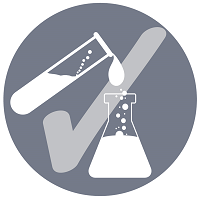Back
Formulation and Delivery – Biomolecular
Session: Symposium: Recent Development in Prophylactic Therapies and Vaccines (BM)
Eliminating the Freeze: Vaccine Production is a Breeze with Thermostable Film
Monday, October 17, 2022
9:30 AM – 10:00 AM ET
Location: 204 AB

Maria A. Croyle, Ph.D.
Glaxo Wellcome Professor of Pharmaceutics
University of Texas at Austin
Austin, Texas
Speaker(s)
Four of the eight Development Goals adopted at the Millennium Summit of the United Nations in 2000 initiated a global mandate for physically stable, potent, cost-effective vaccines that can be easily delivered en masse as a sustainable means of preventing infectious disease. While over 20 life-threatening diseases can now be prevented by immunization, vaccination strategies continue to rely on injectable platforms which can only be distributed by medical personnel and cold-chain requirements remain. These deficiencies came to the forefront during the COVID-19 pandemic with vaccines developed against a novel pathogen in record time yet were fraught with significant distribution challenges. This presentation will review traditional methods for formulation and stabilization of vaccines and biological drugs and the role that thin film technology can play in accelerating distribution of vaccines. Fundamental pharmaceutical principles that can be applied to stabilization of biologics within a film matrix and models suitable for in vitro assessment of formulations and adjuvants for oral vaccines will also be discussed. Proof of concept studies demonstrating thermostability and/or in vivo performance of virus-based vaccines, gene therapy products and nucleotide therapeutics will be summarized. Film technology, once thought to be limited to the administration of small molecule drugs, holds promise in addressing logistical and infrastructure challenges vaccines and biological drugs face on the global scale which include thermostability, ease of manufacture and simplified administration and distribution to those that need these medicines the most.
Learning Objectives:
- Upon completion, the participant will be able to identify current barriers to global access to vaccines and biological drugs.
- Upon completion, the participant will be able to describe traditional methods formulation and stabilization of vaccines and biological drugs.
- Upon completion, the participant will be able to understand fundamental pharmaceutical principles of formulation development for vaccines and biological drugs.
- Upon completion, the participant will be familiar with in vitro systems for evaluation of oral vaccine and adjuvant formulations.
- Upon completion, the participant with be able to understand how film based formulations can improve access to vaccines and biologic drugs.

